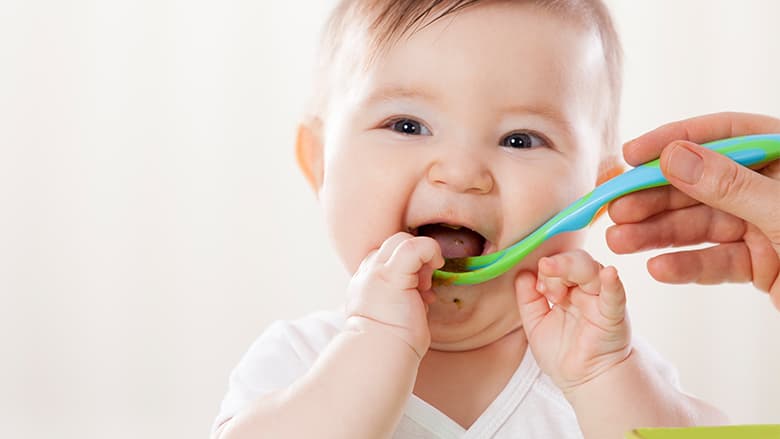Babies grow quickly in the first year hence why they need plenty of energy and nutrients. Your baby's growth is not always steady and even, which means their appetite and hunger can fluctuate and be unpredictable. Thus, some days your baby may show interest in food, and some days they may refuse. This is normal and should not be fretted if your baby is growing well.
By around 6 months, a baby's iron level stored is low and extra foods will be needed to support their growth and prevent nutritional problems such as iron deficiency. So, which foods should you introduce to your baby? Here are some suggestions.
Gone are the days when bland rice cereal was the norm. Today, there are no hard and fast rules for a baby's first foods. But, it is important to offer a variety of vegetables, fruits, and meats to get your baby used to different tastes and textures. Hence, feel free to experiment with your baby's foods.
4 to 6 months: Single-grain cereals
Since a baby's iron level drops after birth, cereals fortified with iron make the perfect early food. Combine 1 teaspoon of single-grain cereal with 4 to 5 teaspoons of formula or breast milk. At first, most of the cereal will end up on your baby's chin. It may be messy and frustrating, however, the goal of this is to expose your baby to a different type of eating.
And if your baby shakes their head no, turns away, or refuses to open their mouth after only one mouthful, do not force them to continue eating. And if they show no interest in trying cereal, wait a week or so before you try again. Once your little one is used to swallowing runny cereal, thicken it by adding less water or breast milk and more cereal.
6 to 8 months: Single-ingredient finger foods
Whether you have started with purees or are introducing solids with finger foods, many babies enjoy experimenting with self-feeding from early on. But, do not give any hard, raw foods (such as apple slices or carrot sticks) during this point. Ensure that fruits and veggies are soft enough and mashable with gentle pressure on your fingers. Some examples include cooked peas, small pieces of banana or avocado, or rice puffs. Don't put salt or sugar in their food — it's best if your baby learns to like their food without the added flavour!
9 to 12 months: Chopped, ground, or mashed foods
As soon as your little one is ready, you can do away with purees. Instead, incorporate more finger foods with textures like yogurt, cottage cheese, bananas, and mashed sweet potatoes. Your child may also use more iron, hence, add pureed meats like beef and chicken into their diet.
Check out our range of baby food here.
















